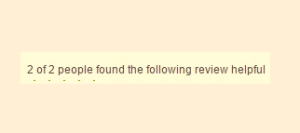Automation is one of the future technologies I use in my novels, but my vision of the late-21st and early-22nd centuries is likely a conservative prediction of what will be. The exponential nature of technology makes it difficult, if not impossible, to predict how technological advances will change human lives many decades from now. I do my best to extrapolate what’s happening now, aware that I may be overestimating some advancements while underestimating others.
Consider, for instance, robots taking our jobs. In Peer Through Time, a family dines in a restaurant with no human servers, submitting their order by touchscreen. That technology that is already here. I recently went to my favorite grilled-cheese sandwich eatery for the first time in several months. Though I was greeted by a nod from the human behind the counter, a new contraption stood between us: an automated ordering kiosk. I looked at the screen, beckoning me with its colorful, high-resolution display, then back at the human behind the counter.
“Either way?” I asked.
“Either way,” he said, before returning to a conversation with his co-worker, clearly indicating he didn’t particularly want to take my order.
I turned back to the machine. In clear, simple language, signs told me step by step what to do, but it was all intuitive anyway. Touch the picture of the thing you want to eat. Touch the picture of the other thing you want to eat, and so on. Confirm your entire order by making sure the pictures and text are correct. Swipe your card. You are number seven. Now wait. Watch your number rise on the electronic board displaying which order is coming up next. It’s the ultimate in immediate gratification. I might even pay more for this cool, easy service, but I don’t have to. It costs the owner less, so they don’t have to charge more.
But what of the two humans behind the counter, whispering between themselves while their customers point and swipe away at the kiosk? They’re still working. The place isn’t that automated, at least not yet. They’re making the food—with help from machines, of course.
At the grocery store, self-checkout stations have been around for some time, but at first, the technology was so clunky I couldn’t stand it. That’s still the case in some stores, but improvements are being made. For now, while grocery shopping, I choose a human cashier most of the time. Besides, it’s sort of like having a brief visit with a friend, since many of the cashiers at my local supermarket have been there for years.
It’s a different story at the local movie theaters, where human cashiers have been 100% replaced by kiosks. Touch the picture of the movie you want to see. A couple more taps and a swipe, and your tickets are printed out for you. There’s still human interaction when it comes to ordering snacks and drinks, but sometimes it seems the ticket machines have more life and personality than the disinterested staff minding the corn popper. Every once in a while, though, one of those young humans offers service with a smile, taking pride in their ability to socially interact face-to-face. They are the shining stars who will find success elsewhere, once theater snack counters become fully automated.
Humans have a history of being wonderful to one another, and of being horrible to one another. You don’t have to look far to witness a customer treating a cashier, or anyone in the service industry, as an inferior life form. Is it possible that the shift to automation will eventually put an end to such treatment, since there will be no more cashiers to treat with disdain? Or will people simply find new ways to demean each other?
I suspect it will be a little of both. Meanwhile, I welcome the already-in-progress automation revolution with a mixture of open-mindedness, skepticism, and concern for those who will be unable to adapt. In the long run, I believe putting machines to work for us will make the world a better place for humans, but in the near future, there’s going to be a lot of upheaval and turmoil.
Still, that’s nothing that we, as a species, haven’t gotten ourselves through before.
The above was inspired, in part, by the article 3 Predictions for the future of jobs, by Kristel Van der Elst.












